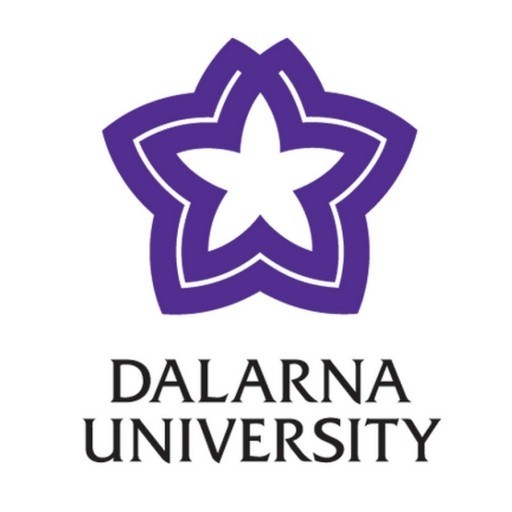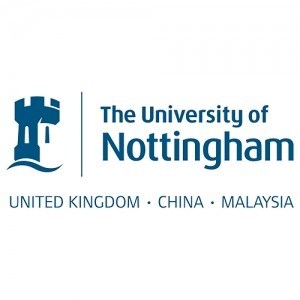Photos of university / #lundsuniversitet
The Bachelor's Degree Programme in Language and Linguistics, English at Lund University offers students a comprehensive and in-depth understanding of the English language, its structure, history, and use. This programme is designed for those who have a keen interest in language, communication, and the societal role of English. Throughout the programme, students will explore various aspects of language, including phonetics, phonology, morphology, syntax, semantics, and pragmatics, gaining a solid foundation in linguistic theory and analysis. The programme also emphasizes the development of practical skills in language description, analysis, and scholarly research, preparing students for diverse career opportunities in areas such as education, communication, translation, editing, and further academic studies.
Students will have the opportunity to study the historical development of English and its various dialects, as well as contemporary issues related to language use, language policy, and language diversity. The curriculum combines theoretical courses with practical applications, including linguistic data collection, analysis, and presentation. Through lectures, seminars, and project work, students will enhance their analytical thinking, critical skills, and ability to communicate complex ideas effectively. Additionally, the programme encourages a multidisciplinary approach, integrating insights from sociology, psychology, and media studies to understand language in its social contexts.
Lund University is committed to providing a stimulating academic environment with access to modern facilities and a supportive learning community. The programme also offers exchange opportunities within the European Higher Education Area, allowing students to gain international perspectives and experience different linguistic and cultural environments. Graduates from this programme will be well-equipped for careers in teaching, translating, editing, publishing, research, or continue their studies at the master’s level or other advanced educational programmes. The programme adheres to the standards of higher education in Sweden, ensuring a high-quality academic experience that combines theoretical knowledge with practical skills essential for professional success in the diverse fields related to language and linguistics.
The Bachelor's programme in Languages and Linguistics at Lund University offers students a comprehensive introduction to the scientific study of language and its applications. The programme is designed to provide a solid foundation in various aspects of language, including its structure, history, and social functions. Throughout the course, students explore linguistic theory, syntax, semantics, phonetics, and phonology, gaining a deep understanding of how language operates at different levels. The curriculum also emphasizes the relationship between language and society, examining language variation, language change, and the role of language in identity and communication.
Students will have the opportunity to study multiple languages, including English, which is a central focus of the programme. Courses in English linguistics cover topics such as grammar, vocabulary, pragmatics, and discourse analysis, allowing students to analyze English language use from both a theoretical and practical perspective. This enables students to develop critical thinking skills and enhance their ability to analyze language in various contexts, including media, literature, and everyday communication.
In addition to linguistics, the programme offers courses in language acquisition, cognitive processes related to language, and the history of languages. Students engaged in these studies gain insights into how languages develop over time, how they are learned by both children and adults, and the cognitive mechanisms underlying language use. Practical training sessions may also include language documentation, fieldwork, and the analysis of real-world linguistic data.
The programme emphasizes interdisciplinary studies, combining linguistic theory with insights from other fields such as anthropology, psychology, and computer science. This interdisciplinary approach prepares students for careers in language technology, translation, interpretation, teaching, and research. The programme also encourages students to develop excellent language skills and cultural competence, which are highly valued in an increasingly globalized world.
Throughout their studies, students are encouraged to participate in seminars, projects, and internships that foster teamwork, communication skills, and practical experience. The degree culminates in a Bachelor's thesis, where students demonstrate their ability to conduct independent research on a linguistic topic of their choice.
Graduates of the programme will be well-equipped with the analytical skills, theoretical knowledge, and practical expertise necessary for diverse career paths. Whether pursuing postgraduate studies or entering the workforce directly, students will be prepared for the challenges of working with language in various professional contexts. The programme at Lund University thus provides a thorough and versatile education in languages and linguistics, fostering critical analysis, research skills, and a deep appreciation of language as a fundamental part of human life.
Admission requirements for the Bachelor’s programme in Language and Linguistics (English) at Lund University typically include a general university entry qualification, such as the Swedish "Slutbetyg" or equivalent international qualifications. Applicants are also required to demonstrate proficiency in English, usually through standardized tests like IELTS (minimum overall score of 6.5) or TOEFL (minimum score of 90 on the internet-based test). Specific subject prerequisites may include completion of upper secondary school courses relevant to language studies, such as English, Swedish, and other humanities subjects, although these are not always explicitly mandated.
Applicants need to submit a completed application form via the Swedish national application portal (www.universityadmissions.se) within the designated deadline. The application process may also require a motivation letter explaining the applicant’s interests in linguistics and language studies, along with academic transcripts from previous education. For non-native English speakers, proof of English language proficiency is compulsory, and the accepted tests and minimum scores are outlined in the admission guidelines.
The programme does not have an entrance exam, but it evaluates applicants based on their academic qualifications and supplementary materials such as personal motivation statements. International students must also meet the conditions for residence and visa regulation if applicable. Overall, the program seeks applicants with a strong interest in language structure, usage, and linguistics theory, as well as good analytical and communicative skills. For detailed and updated requirements, applicants should consult the official Lund University admissions webpage, as criteria can be revised annually.
Financing studies for the Language and Linguistics, English program at Lund University are primarily covered through a combination of scholarships, government loans, and personal funding. International students are encouraged to explore a range of scholarship options offered by Lund University, including the Lund University Global Scholarship, which awards high-academic-achieving students significant tuition fee waivers. Scholarship opportunities are highly competitive and are based on academic excellence, motivation, and other criteria specified by each award. Additionally, students from the European Union (EU) and European Economic Area (EEA) countries benefit from the Swedish financial aid system, which includes student loans and grants provided by the Swedish National Student Aid (CSN). These loans are available to students studying full-time and can be used to cover living expenses as well as tuition fees, where applicable. For non-EU/EEA students, financing options include private loans, grants, and part-time work opportunities, although work hours are regulated by visa regulations. Many students supplement their income through on-campus employment, internships, or part-time jobs in Lund, which is a student-friendly city with numerous employment opportunities in academia, services, and retail sectors. Furthermore, some students may choose to fund their studies through savings, family support, or external scholarships from their home countries or international organizations. It is important for prospective students to carefully plan their finances and explore all available options before commencing their studies. Lund University also offers financial guidance and support services to assist students in managing their study-related expenses effectively. Therefore, comprehensive financial planning is crucial for international students looking to study Language and Linguistics, English at Lund University, ensuring they can fully engage with their academic pursuits without undue financial stress.
The Bachelor's degree programme in Language and Linguistics at Lund University offers students a comprehensive foundation in the scientific study of language. The programme explores various facets of language, including its structure, history, and use in society. Students gain an understanding of linguistic theories, phonetics, morphology, syntax, semantics, and pragmatics. Additionally, the programme emphasizes the importance of language as a social phenomenon, examining language variation, language change, and language in different social contexts.
Throughout the degree, students engage in both theoretical studies and practical applications, including language analysis, exploring the cognitive processes involved in language comprehension and production, and studying language acquisition. The curriculum includes courses in general linguistics, specific language structures, and linguistic analysis, along with options to focus on areas such as phonetics, syntax, or language history. Students also develop key skills in linguistic research methods and data analysis, enabling them to conduct independent investigations.
The programme prepares students for diverse career paths, including language teaching, translation, interpretation, speech therapy, and roles within publishing, media, and communication sectors. It also provides a solid foundation for further studies at the graduate level, whether in linguistics, language technology, cognitive science, or related fields.
Lund University's international environment offers students the chance to collaborate with peers from around the world, participate in a variety of academic and extracurricular activities, and gain intercultural competence. The university’s research-rich environment ensures that students are exposed to current issues in linguistics and related disciplines.
Overall, the programme aims to equip students with a deep understanding of language phenomena, analytical skills, and the ability to critically evaluate linguistic theories, making it an excellent choice for those passionate about language and its role in human society.








